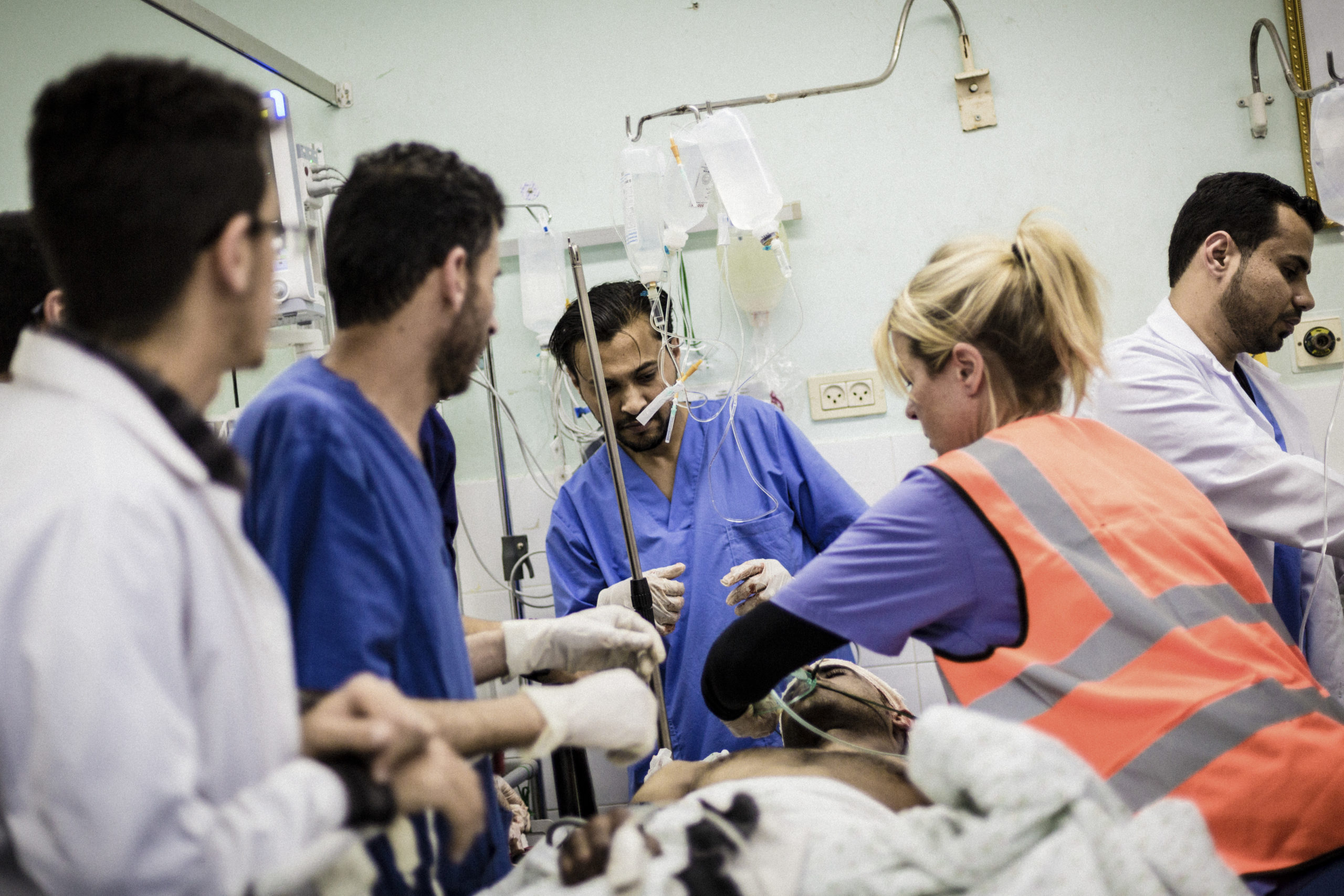While carrying out their life-saving mission, healthcare workers must negotiate daily with patients, patients’ families, members of armed forces, and authorities. In situations of armed conflict or other crisis, this interaction is complicated: emotions are heightened, and considerable pressure is felt by all counterparts… The ability to de-escalate a tense situation is key to manage and prevent violence in healthcare settings and essential to bring a conducive environment for the negotiations.
Therefore, we invite you to join a session open to all held by the CCHN together with the ICRC’s Health Care in Danger unit who will share their de-escalation and violence management approach in healthcare settings.
Date: Monday, 20th November 2023
Time: 14:00-15:30 (CET, Geneva time)
Language: English
Location: Online (Zoom)
Cost: Free
Register today to secure your spot for this event!
ABOUT THIS SESSION:
Health Care in Danger (HCiD) is an initiative led by the International Committee of the Red Cross that aims to address the issue of violence against patients and health workers, facilities and vehicles, and to ensure safe access to and delivery of health care in armed conflict and other emergencies. One of the ways in which the health-care community has been responding to such violence is through training courses for people who work in health-care settings. The Movement has developed its own tools for managing and de-escalating violence in healthcare settings: a manual developed by the Norwegian Red Cross on preventing interpersonal violence in health-care settings and training materials created by the ICRC’s delegation in Pakistan.
During this session, John Bromley (Director of the National Social Marketing Center, behavioral change consultant) and Drew Penland (Operations and Movement Advisor in the Health Care in Danger Team, ICRC) will be sharing this approach with the CCHN community.
WHAT WILL I LEARN?
- The evidence and the background behind the de-escalating violence in healthcare settings approach.
- Key behaviors for preventing and de-escalating tense situations.
- Dive into the didactic material available to strengthen the capacity of healthcare workers in de-escalation.
- Ways forward for the CCHN Community of Practice.
WHO ARE THE SPEAKERS?
John Bromley is a founding Director of the National Social Marketing Centre and has over twenty years of experience in developing, implementing and evaluating behaviour change programmes in the UK and internationally. He has considerable experience in capacity building in the government and NGO sectors. His recent work includes a global behaviour change programme to reduce violence against healthcare workers for the International Committee of the Red Cross (ICRC), and a service redesign for their emergency health clinics for Medecins Sans Frontieres in South Africa. He is a Fellow of the Royal Society of Public Health.
Drew Penland has worked in humanitarian operations for 20 years, including a period with the UN and since 2009 with the ICRC. He has worked in numerous and diverse contexts including Afghanistan, Syria and Yemen. He joined the Health Care in Danger team at the ICRC in 2021 as Operations and Movement Advisor. He holds an MSc degree in Violence, Conflict and Development from SOAS, University of London.
WHAT ARE THE SELECTION CRITERIA?
This event is open for everyone to register, particularly humanitarian professionals working in or around healthcare.
WHAT IS THE EVENT FORMAT?
The thematic session will last for 1h 30min. It will consist of a presentation followed by a Q&A session and discussion.


